At the General Audience on Wednesday, Pope Francis highlights the equality of all Christians in Christ, noting that anyone who accepts Christ in faith has “put on” Christ and His filial dignity through baptism.
Continuing his catechesis on the Letter of Saint Paul to the Galatians during the General Audience on Wednesday, Pope Francis noted the apostle’s insistence to Christians not to forget the novelty of God’s revelation that had been proclaimed to them.
The Pope reflected on St. Paul’s emphasis on faith in Jesus which has allowed us to truly become children of God and His heirs. Therefore, Christians are to remember with gratitude the moment we became such – the moment of our baptism – “so as to live the great gift we have received with greater awareness.”
Faith makes us God’s children “in Christ”
Once “faith has come” in Jesus Christ, the Pope noted, “a radically new condition was created that leads to divine sonship.”
It is not a sonship involving all men and women insofar as they are sons and daughters of the same Creator; rather, faith allows us to be children of God “in Christ.”
Being Children of God “in Christ” thus, makes a difference, because through Jesus’ incarnation he became our brother, and by His death and resurrection, He has reconciled us to the Father.
So, “anyone who accepts Christ in faith, has “put on” Christ and His filial dignity through baptism.”
Baptism transforms us
Pope Francis further explained that for St. Paul, who made reference to baptism several times in his letters, “to be baptized was the same as taking part effectively and truly in the mystery of Jesus.”
In the Letter to the Romans, for example, Paul stated that in baptism we have died with Christ and have been buried with Him, so as to live with Him (Rom 6: 3-14)
Baptism, therefore, is not merely an “external rite.” Rather, those who receive it “are transformed deep within” and “possess new life” which allows them to turn to God and call Him with the name of “Abba, Father.”
The Holy Father, in this regard, encouraged Christians to find out their date of baptism and to celebrate it.
Baptism goes beyond differences
Speaking further, the Pope noted St. Paul’s audacious confirmation that the identity received with baptism is so new that it prevails over the differences that exist on the ethnic-religious level, beyond differences of Jew or Greek, slave or free, male or female (Gal 3:28).
“For Paul to write to the Galatians that in Christ, there is neither Jew nor Greek was equivalent to an authentic subversion in the ethnic-religious sphere,” the Pope explained, because by the fact of belonging to a chosen people, the Jew was privileged over the pagan.
Similarly, taking out the distinction between the “free” and “slaves” introduced a shocking perspective, as by law, “free citizens enjoyed all rights, while not even the human dignity of slaves was recognized.” Likewise, equality in Christ, which overcomes the social differences between the two sexes, “was revolutionary at the time” and “needs to be reaffirmed even today.”
In this way, St. Paul confirms the profound unity between all the baptized because every one of them is “a new creature in Christ.” Thus, every distinction is secondary to the dignity of being children of God who “creates a real and substantial equality.”
Called to live as children of God
The Holy Father then highlighted that we are called in a more positive way to live a new life that roots its foundational expression in being children of God, discovering the beauty of being “brothers and sisters among ourselves, because we have been united in Christ.”
“The differences and contrasts that separation creates should not exist among believers in Christ,” the Pope said. “Rather, our vocation is that of making concrete and evident the call to unity of the entire human race.”
In this manner, everything that exacerbates differences and causes discrimination no longer has any meaning, thanks to the salvation effected in Christ.
“What is important is that faith that operates according to the path of unity indicated by the Holy Spirit,” Pope Francis concluded, adding that “our responsibility is that of journeying decisively on along this path.”
Greetings for Ethiopian New Year
At the conclusion of the General Audience, Pope Francis had a special word of greeting for the people of Ethiopia, who will celebrate the beginning of the New Year – according to the Ethiopian calendar – on September 11.
“I extend my heartfelt and affectionate greeting to the Ethiopian people,” he said, “and especially to those who are suffering due to the ongoing conflict and the grave humanitarian situation it has cause.”
He added his hopes that the New Year “might be a time of fraternity and solidarity, in which we listen to the common desire for peace.”

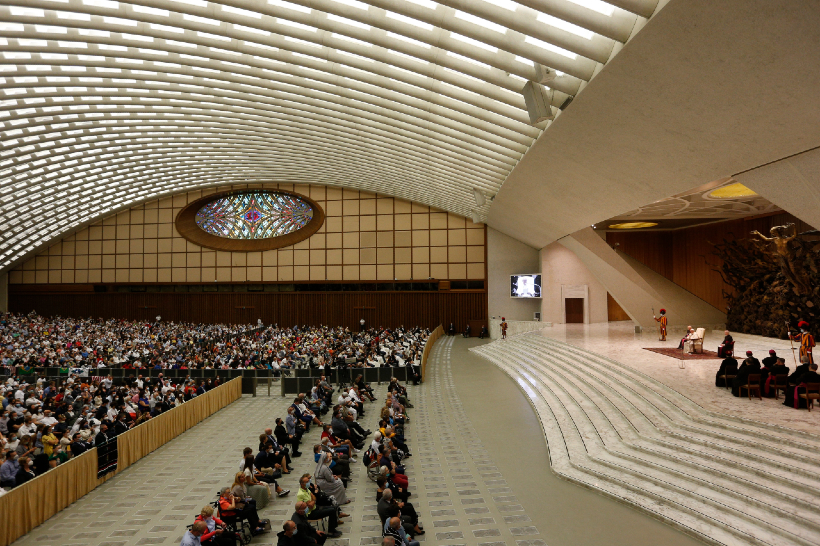
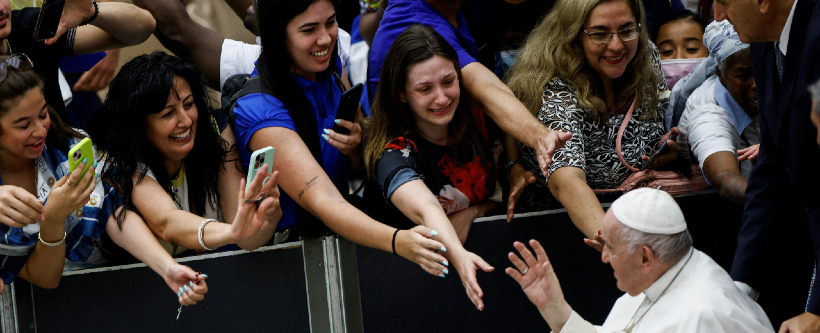
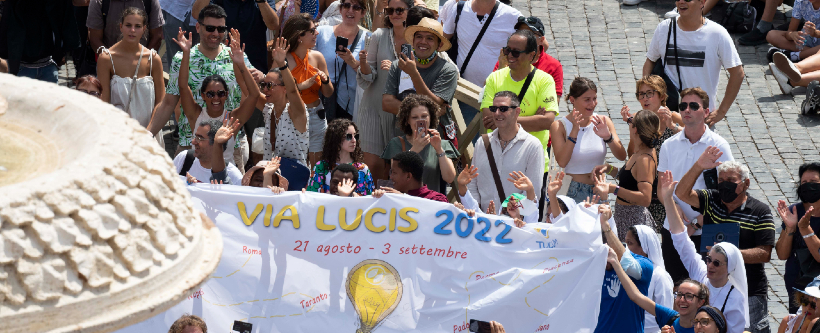
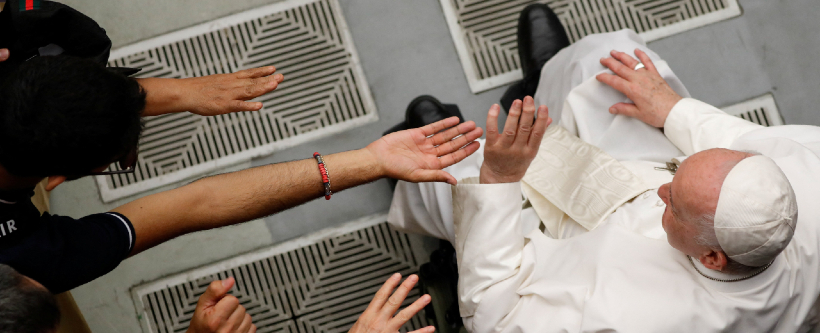
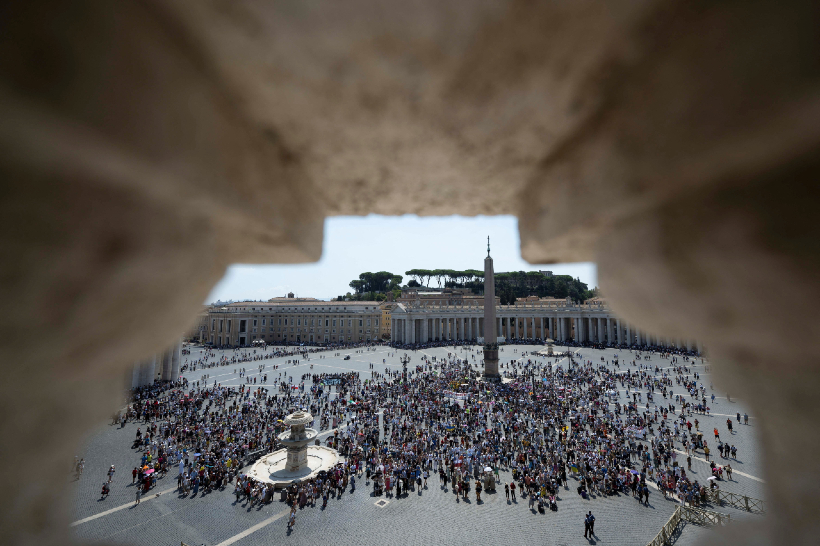
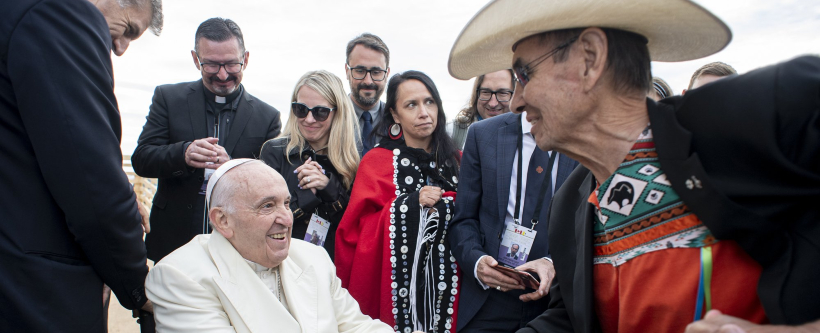
Facebook Comments